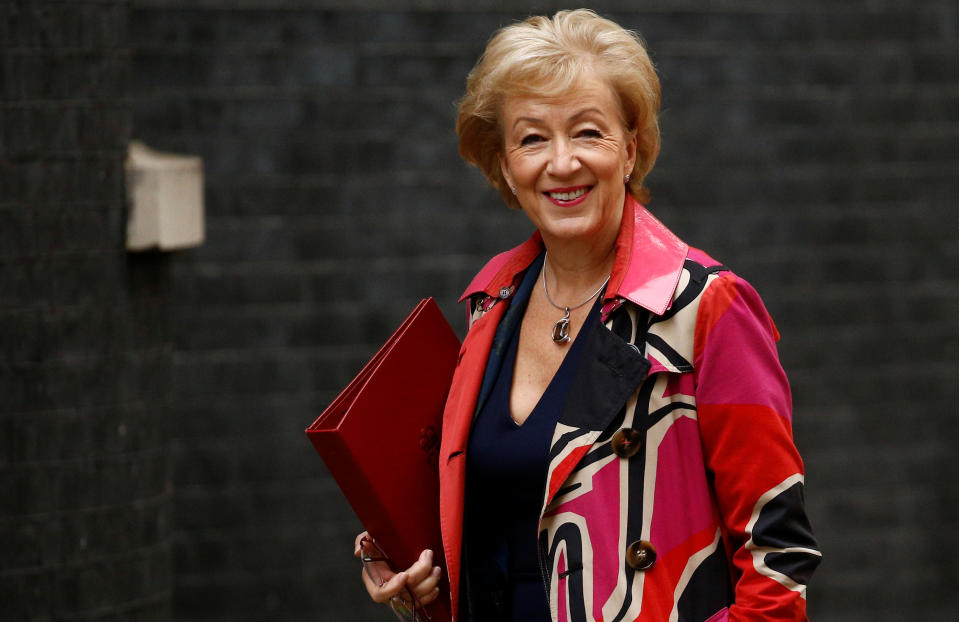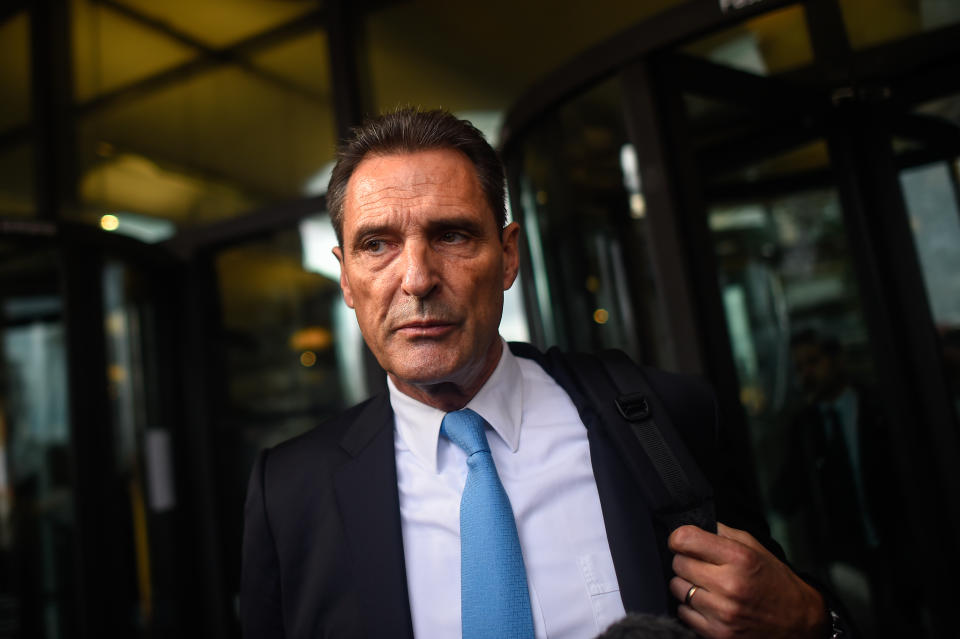Leadsom: Thomas Cook bailout would be 'throwing good money after bad'

Business Secretary Andrea Leadsom has said a government bailout of Thomas Cook would have been like “throwing good money after bad.”
Leadsom told the Business, Energy, and Industrial Strategy (BEIS) select committee on Tuesday that the government decided “not to intervene with a financial bailout” because Thomas Cook’s turnaround plan was judged to be not “viable.”
“The Treasury looked very closely into the case... it was quite clearly that the £200m plus – and I can only speak for the final endgame – that the company was looking for would only have dealt with it in the short term,” Leadsom told MPs.
“They were carrying significant amounts of debt. It was simply a case of throwing good money after bad, and it would not be possible to restore the company to health.”
READ MORE: Thomas Cook CEO 'sorry' for collapse but avoids questions on handing back pay
Leadsom said the government’s priority was to “help the company where possible, but also to protect the taxpayer and very importantly to protect the staff and holidaymakers.”

Thomas Cook went into liquidation at the end of September after failing to agree an 11th-hour rescue deal. Banks and Thomas Cook’s biggest shareholder Fosun had agreed to restructure debt and inject new capital, but walked away after the government refused to agree to support Thomas Cook if the restructure didn’t lead to an upturn in performance.
Leadsom’s testimony deals a blow to Thomas Cook’s former management, who had earlier in the day tried to convince the same committee that the tour operator would have flourished after the restructure and Thomas Cook only collapsed because the government failed to backstop the rescue deal.
Former Thomas Cook chairman Frank Meysman told the committee that Thomas Cook’s proposed restructure “would have been a great plan to the benefit of employees, it would have not cost anything to the UK government in any way is my view, but it would have saved the employees, it would have save the hoteliers.” He said the only thing that stopped the rescue plan was the government’s failure to support the deal.
READ MORE: MP blasts 'deluded' Thomas Cook management over company's collapse
Former CEO Peter Fankhauser said the proposed restructure would have made Thomas Cook “probably have been the best funded travel company in Europe” and allowed “a new start.”
Appearlng alongside Leadsom, permanent secretary for the BEIS department Alex Chisholm said the decision not to backstop the deal was taken on a “purely commercial” basis. Thomas Cook was struggling under a £1.2bn debt pile that required annual interest payments of £150m when it collapsed.
Leadsom and Chisholm appeared in front of the BEIS committee to answer questions on the department’s work. Leadsom faced questions from MPs on her engagement with Thomas Cook in the weeks leading up to its collapse. Fankhauser had told the committee that he had frequent contact with five European tourism ministers in the week’s before Thomas Cook’s collapse but his only engagement with the UK government at ministerial level was a single meeting with Transport Secretary Grant Shapps.
Leadsom said she didn’t meet with Thomas Cook because the Department for Transport led the government’s relationship with the company. Leadsom “had a number of conversations” with Shapps about the company’s health and was “working very closely” with the Department for Transport in the weeks before Thomas Cook’s collapse.
The Business Secretary said Thomas Cook’s collapse was “truly devastating” for staff and “very worrying” for holidaymakers, but said she was proud of the government’s response. She highlighted the speed at which the 150,000 stranded Thomas Cook passengers were flown home and said her department had set up a special task-force to help Thomas Cook’s 9,000 UK staff find work.

 Yahoo Finance
Yahoo Finance 